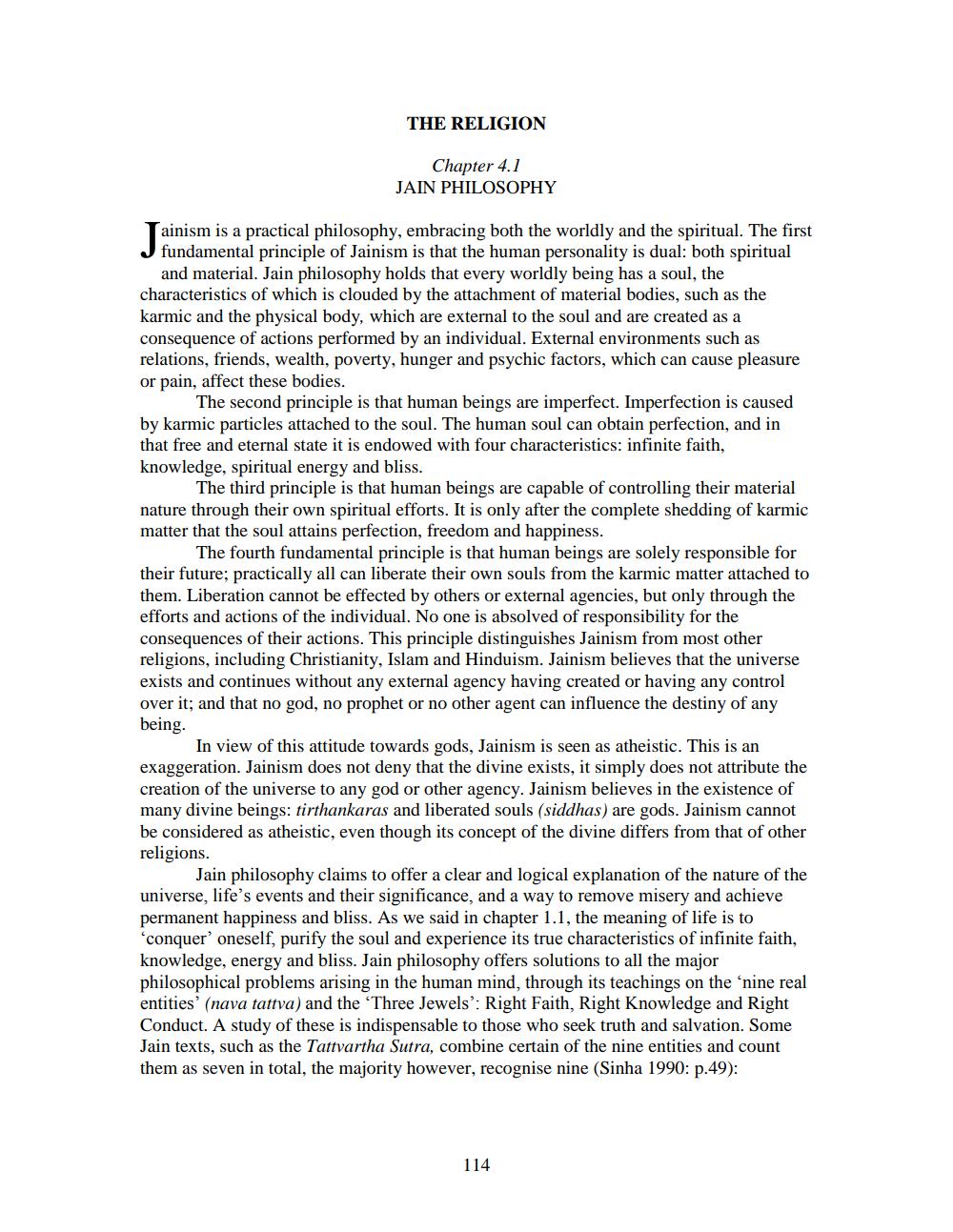________________
THE RELIGION
Chapter 4.1 JAIN PHILOSOPHY
ainism is a practical philosophy, embracing both the worldly and the spiritual. The first I fundamental principle of Jainism is that the human personality is dual: both spiritual
and material. Jain philosophy holds that every worldly being has a soul, the characteristics of which is clouded by the attachment of material bodies, such as the karmic and the physical body, which are external to the soul and are created as a consequence of actions performed by an individual. External environments such as relations, friends, wealth, poverty, hunger and psychic factors, which can cause pleasure or pain, affect these bodies.
The second principle is that human beings are imperfect. Imperfection is caused by karmic particles attached to the soul. The human soul can obtain perfection, and in that free and eternal state it is endowed with four characteristics: infinite faith, knowledge, spiritual energy and bliss.
The third principle is that human beings are capable of controlling their material nature through their own spiritual efforts. It is only after the complete shedding of karmic matter that the soul attains perfection, freedom and happiness.
The fourth fundamental principle is that human beings are solely responsible for their future; practically all can liberate their own souls from the karmic matter attached to them. Liberation cannot be effected by others or external agencies, but only through the efforts and actions of the individual. No one is absolved of responsibility for the consequences of their actions. This principle distinguishes Jainism from most other religions, including Christianity, Islam and Hinduism. Jainism believes that the universe exists and continues without any external agency having created or having any control over it; and that no god, no prophet or no other agent can influence the destiny of any being.
In view of this attitude towards gods, Jainism is seen as atheistic. This is an exaggeration. Jainism does not deny that the divine exists, it simply does not attribute the creation of the universe to any god or other agency. Jainism believes in the existence of many divine beings: tirthankaras and liberated souls (siddhas) are gods. Jainism cannot be considered as atheistic, even though its concept of the divine differs from that of other religions.
Jain philosophy claims to offer a clear and logical explanation of the nature of the universe, life's events and their significance, and a way to remove misery and achieve permanent happiness and bliss. As we said in chapter 1.1, the meaning of life is to 'conquer' oneself, purify the soul and experience its true characteristics of infinite faith, knowledge, energy and bliss. Jain philosophy offers solutions to all the major philosophical problems arising in the human mind, through its teachings on the ‘nine real entities' (nava tattva) and the 'Three Jewels': Right Faith, Right Knowledge and Right Conduct. A study of these is indispensable to those who seek truth and salvation. Some Jain texts, such as the Tattvartha Sutra, combine certain of the nine entities and count them as seven in total, the majority however, recognise nine (Sinha 1990: p.49):
114




